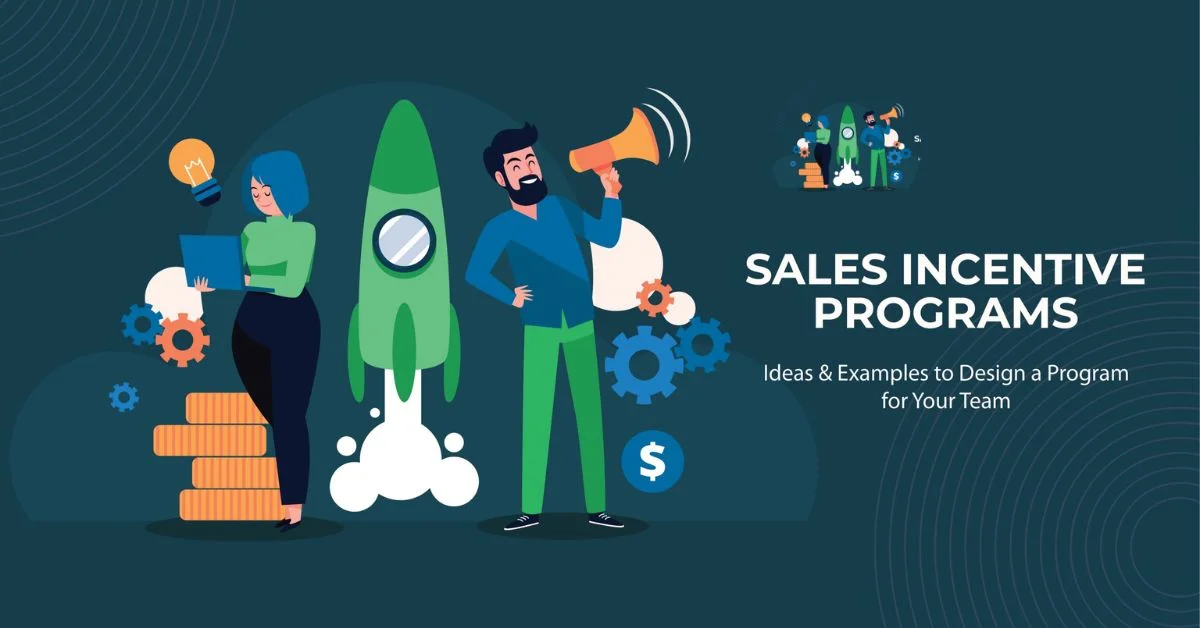Sales teams thrive on motivation. But motivation isn’t just about pep talks and annual bonuses. It’s about creating a system that consistently rewards effort, achievement, and loyalty. A well-structured incentive sales rep programme does just that—driving performance, boosting engagement, and ultimately increasing revenue.
The Problem: Motivation Fluctuates
Even the best sales reps hit slumps. Long sales cycles, rejections, and the daily grind can sap enthusiasm. When targets feel out of reach, performance dips. A simple salary won’t always keep them pushing forward. They need something extra.
Without the right incentives, sales reps can quickly become disengaged. According to a Gallup study, only 34% of employees feel engaged at work—and disengagement leads to lower productivity, higher turnover, and lost sales opportunities. In competitive industries, staying ahead requires more than a competitive salary.
The Agitation: Missed Opportunities Hurt
An unmotivated sales team doesn’t just mean fewer deals—it means lost revenue, disengaged employees, and an uninspired customer experience. Research from Harvard Business Review shows that high-performing salespeople are nearly 400% more productive than their lower-performing peers. If your reps aren’t engaged, you’re leaving serious money on the table.
Consider this: a disengaged sales rep making 20 calls a day might close one deal a week. A motivated, high-performing rep making the same 20 calls could close five. Multiply that across a team, and the impact on revenue is staggering. If businesses fail to engage their sales teams, competitors who prioritise motivation will seize market share.
The Solution: A Strategic Incentive Programme
An effective incentive programme does more than offer cash rewards. It creates a culture of achievement, turning every target into an opportunity. Here’s how to make it work:
1. Make Rewards Meaningful
Money is great, but it’s not everything. In a study by the Incentive Research Foundation, 65% of employees preferred non-cash rewards, such as experiences, travel, and personal development opportunities. Why? Because they’re memorable. A £5,000 bonus gets absorbed into everyday expenses. A luxury weekend getaway? That’s something they’ll talk about for years.
To tailor rewards, consider your team’s demographics and interests. Younger sales reps may prefer experiential rewards like adventure trips or high-tech gadgets. Seasoned professionals might appreciate fine dining experiences or professional development courses. The key is personalisation—when a reward feels bespoke, it becomes a stronger motivator.
2. Recognise More Than Just Revenue
Not every deal closes in a month. Some take persistence, creativity, and teamwork. Recognising behaviours like strategic thinking, client relationship-building, and knowledge-sharing keeps motivation high—even when deals take time to land.
A peer-nominated award system can reinforce positive behaviours. For example, allowing sales reps to nominate colleagues for ‘Most Valuable Teammate’ or ‘Best Client Closer’ fosters camaraderie and recognition beyond revenue-driven incentives. When salespeople see their efforts valued beyond numbers, they feel more invested in the company’s success.
3. Create Healthy Competition
A little friendly rivalry can work wonders. Sales leaderboards, monthly challenges, and tiered incentives push reps to outperform themselves. According to a report by Xactly, sales teams using gamified incentives see a 12% increase in productivity.
A well-designed competition keeps engagement high while ensuring fairness. Consider structuring contests to reward both top performers and those showing the most improvement. A mix of individual and team-based incentives prevents discouragement among those still developing their skills.
4. Keep It Simple and Transparent
Complicated reward structures confuse and frustrate. If your reps don’t understand how to earn rewards, they won’t engage. Set clear goals, communicate them often, and make tracking progress effortless. A real-time dashboard showing who’s leading, who’s close, and what’s up for grabs keeps momentum strong.
Transparency also builds trust. When reps clearly understand what’s required to achieve incentives, they feel more in control of their success. Ensure that criteria for rewards are measurable and consistently applied. Ambiguity can lead to disengagement and resentment.
5. Mix Short-Term and Long-Term Incentives
Quick wins keep reps engaged daily, while bigger rewards drive long-term success. Use a mix of weekly competitions, quarterly bonuses, and annual trips to maintain consistent motivation.
For example, a short-term incentive could be a ‘Deal of the Day’ challenge, rewarding the first rep to close a deal before noon. A long-term incentive might be a points-based system, where reps accumulate points for deals closed over a quarter, redeemable for high-value rewards like international travel or premium training opportunities.
6. Leverage Technology for Personalisation and Efficiency
Modern incentive platforms streamline reward management and ensure sales reps stay engaged. Digital dashboards, mobile notifications, and automated performance tracking help keep motivation levels high. According to McKinsey, companies leveraging AI-driven sales incentive programs see 20% higher sales growth compared to those using traditional methods.
Platforms that integrate CRM data can provide personalised reward recommendations, ensuring incentives are aligned with individual performance patterns. This data-driven approach makes incentives feel more relevant and impactful.
The Result? Higher Sales, Happier Reps
A well-executed incentive programme doesn’t just drive numbers—it creates a sales culture where people strive to win. When reps feel valued and excited about what they can achieve, they push harder, close more deals, and stay loyal to your business.
Incentives don’t just reward success. They create it.
A sales team that’s motivated and engaged is your biggest competitive advantage. The right incentive programme transforms passive employees into proactive performers, ensuring long-term business growth.
The question isn’t whether to incentivise your sales reps—it’s how soon you can start.


